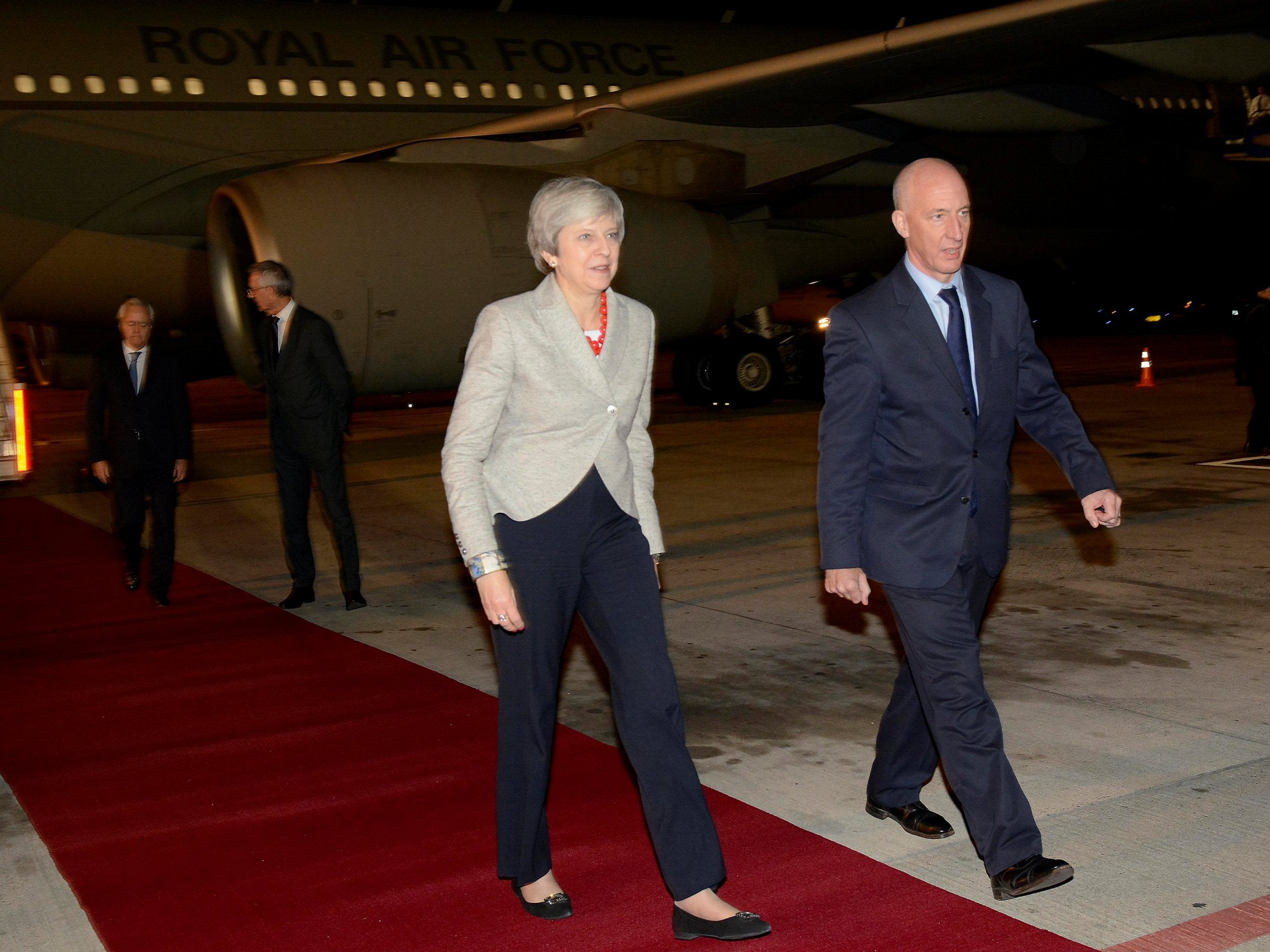May suggests UK has 'already negotiated a good trade deal with EU' despite lack of concrete details
Gaffe appears to exaggerate achievements of a withdrawal package that other parties have criticised as 'blindfold Brexit'

Your support helps us to tell the story
From reproductive rights to climate change to Big Tech, The Independent is on the ground when the story is developing. Whether it's investigating the financials of Elon Musk's pro-Trump PAC or producing our latest documentary, 'The A Word', which shines a light on the American women fighting for reproductive rights, we know how important it is to parse out the facts from the messaging.
At such a critical moment in US history, we need reporters on the ground. Your donation allows us to keep sending journalists to speak to both sides of the story.
The Independent is trusted by Americans across the entire political spectrum. And unlike many other quality news outlets, we choose not to lock Americans out of our reporting and analysis with paywalls. We believe quality journalism should be available to everyone, paid for by those who can afford it.
Your support makes all the difference.The UK has already “negotiated a good trade deal with the EU”, Theresa May has claimed – despite the document having no agreed trading arrangements and no legal force.
The long-term trade aspects of the withdrawal package are contained within the slim “political declaration” that accompanied the divorce deal, which is not a legal treaty.
The EU has insisted trade talks cannot start until after Brexit day next March – and the prime minister herself has previously acknowledged the document offers a “spectrum” of future options.
Furthermore, her own government’s analysis on the likely economic damage from Brexit said it was unable to properly model her deal, because the details are not tied down.
However, speaking to reporters on route to the G20 summit, Ms May claimed: “Obviously, we have negotiated a good trade deal with the European Union.”
Looking ahead to trade discussions at the summit in Argentina, she added: “I think that’s also important for the rest of the world as well.”
The comment is likely to be seized on as a gaffe that exaggerates the achievement of a withdrawal package that other parties have criticised as a “blindfold Brexit”.
It leaves open crucial questions such as customs rules, if and when the UK leaves the EU customs union after the 21-month transition period, and the level of access to the EU single market.
In the interview, the prime minister also insisted she was still ready to push through a no-deal Brexit, if her deal is rejected, despite the Bank of England’s warning it could result in the worst economic crash since the 1930s.
“What the Bank of England was setting out was a worst-case scenario,” she argued.
She said that, if MPs throw out her deal, there “will be decisions to be taken by government and by businesses”.
But she said they would be “in relation to the practical preparations that they will be looking to make for no deal”.
“We are taking contingency arrangements [for no deal]and will continue to do that for all scenarios,” Ms May added.
Join our commenting forum
Join thought-provoking conversations, follow other Independent readers and see their replies
Comments